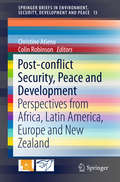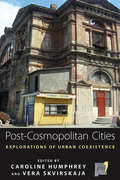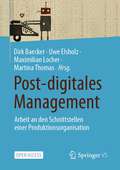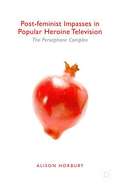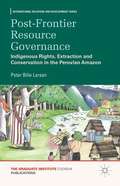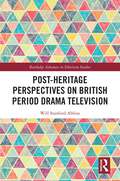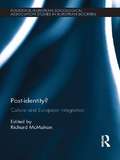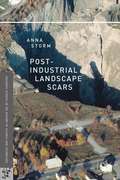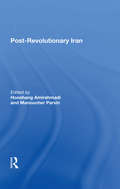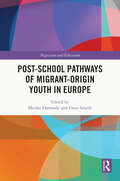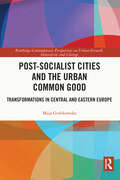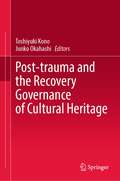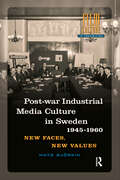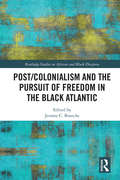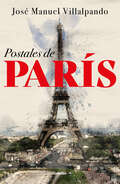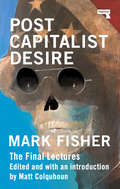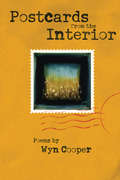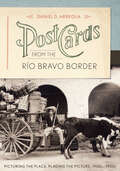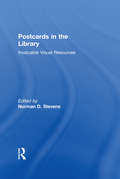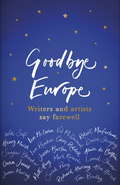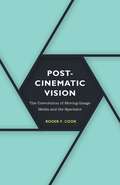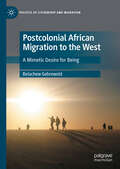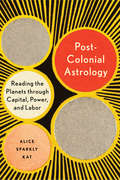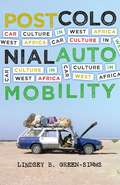- Table View
- List View
Post-conflict Security, Peace and Development: Perspectives From Africa, Latin America, Europe And New Zealand (Springerbriefs In Environment, Security, Development And Peace Ser. #13)
by Christine Atieno Colin RobinsonThis book examines links between post-conflict security, peace and development in Africa, Latin America, Europe and New Zealand. Young peace researchers from the Global South (Uganda, Ivory Coast, Kenya, Brazil, Colombia) as well as from Italy and New Zealand address in case studies traumas in Northern Uganda, demobilisation and reintegration of ex-combatants in the Ivory Coast, economic and financial management of terrorism in Kenya, organised crime in Brazil, mental health issues in Colombia, macro realism in Europe and global defence reforms within the military apparatus since 1990. The book reviews linkages between regional stability, development and peace in post-conflict societies while adding on to the post 2015 international agenda and discusses linkages between peace, security and development.
Post-cosmopolitan Cities
by Caroline Humphrey Vera SkvirskajaExamining the way people imagine and interact in their cities, this book explores the post-cosmopolitan city. The contributors consider the effects of migration, national, and religious revivals (with their new aesthetic sensibilities), the dispositions of marginalized economic actors, and globalized tourism on urban sociality. The case studies here share the situation of having been incorporated in previous political regimes (imperial, colonial, socialist) that one way or another created their own kind of cosmopolitanism, and now these cities are experiencing the aftermath of these regimes while being exposed to new national politics and migratory flows of people.
Post-digitales Management: Arbeit an den Schnittstellen einer Produktionsorganisation
by Dirk Baecker Uwe Elsholz Maximilian Locher Martina ThomasDiese Open-Access-Publikation handelt von Digitalisierungsprojekten in kleinen und mittleren Unternehmen. Es werden Forschungsergebnisse und Praxisbeobachtungen in Beiträgen, Interviews und Handouts von Wissenschaftlern und Praktikern präsentiert.
Post-feminist Impasses in Popular Heroine Television
by Alison HorburyAlison Horbury investigates the reprisal of the myth of Persephone - a mother-daughter plot of separation and initiation - in post-feminist television cultures where, she argues, it functions as a symptom expressing a complex around the question of sexual difference - what Lacan calls 'sexuation', where this question has been otherwise foreclosed. She takes four television heroines dramatizing this Persephone symptom - Ally McBeal, Sydney Bristow, Veronica Mars, and Meredith Grey - to showwhat is unconscious in this symptom, and identifies an impasse in feminist cultural criticisms as they respond to post-feminist cultures on the topic of 'woman'. She introduces psychoanalytic approaches to the novel to rethink the engagement of audiences with this Persephone symptom, and suggests that post-feminist discourses manifesting in Persephone's story offer us a cultural symptom that, when analysed, offers us new reflections on feminism today.
Post-frontier Resource Governance
by Peter Bille LarsenThe 20th century involved an unprecedented scramble for resources reaching the most remote corners of the world. Simultaneously, a quiet revolution has taken place with environmental protection, land and community rights regimes gradually taking hold, albeit unevenly, across the global South. Institutional topographies and policies have never before appeared as green and socially inclusive, yet co-exist with a deepening socio-environmental crisis. Intensified pressures stand in contrast to,persist, and even thrive under new environmental and social protection measures. The author offers an anthropological analysis of the paradox. Building on the concept of post-frontier governance, he presents a portrayal of the host of new regulatory technologies, practices and institutions that nominally close, yet more accurately characterize and restructure, contemporary resource frontiers. The book examines these arrangements ethnographically in the Peruvian Amazon by focusing on the Y#65533;nesha people and their involvement with the organization of indigenous rights, conservation and protected area planning, logging, and oil development.
Post-heritage Perspectives on British Period Drama Television (Routledge Advances in Television Studies)
by Will Stanford AbbissDrawing upon the existing scholarship of period drama and emerging research into new media ecologies, instigated by television streaming services such as Netflix, this book establishes a critical framework for understanding the representation of nationhood and cultural identity in television drama. By formalising the term ‘post-heritage’ the book proposes a methodology which recognises the interplay of traditional and innovative elements within period drama productions. The book applies this critical perspective to popular British period drama productions from the 2010s, with examples including The Crown, the ‘society dramas’ of Upstairs Downstairs and Downton Abbey, Steven Knight’s Dickens adaptations, and Stephen Poliakoff’s recent oeuvre, to demonstrate the benefits of evaluating period drama as part of twenty-first century television’s developments. It challenges the assumptions around characteristics and ideological purpose that period drama discourse often contends with, and offers new perspectives on understanding the past through televisual representations. This book will be important reading for students and scholars of television studies, film studies, and cultural studies.
Post-identity?: Culture and European Integration (Studies in European Sociology)
by Richard McMahonCollective identity, the emotionally powerful sense of belonging to a group, is a crucial source of popular legitimacy for nations. However efforts since the 1990s to politically support European integration by using identity mechanisms borrowed from nationalism have had very limited success. European integration may require new, post-national approaches to the relationship between culture and politics. This controversial and timely volume poses the logical question: if identity doesn't effectively connect culture with European integration politics, what does? The book brings together leading scholars from several of the disciplines that have developed concepts of culture and methods of cultural research. These expert interdisciplinary contributors apply a startling diversity of approaches to culture, linking it to facets of integration as varied as external policy, the democratic deficit, economic dynamism and the geography of integration. This book examines commonalities and connections within the European space, as well as representations of these in identity discourses. It will be useful for students and scholars of sociology, geography, anthropology, social psychology, political science and the history of European integration.
Post-industrial Landscape Scars
by Anna StormPost-industrial landscape scars are traces of 20th century utopian visions of society; they relate to fear and resistance expressed by popular movements and to relations between industrial workers and those in power. The metaphor of the scar pinpoints the inherent ambiguity of memory work by signifying both positive and negative experiences, as well as the contemporary challenges of living with these physical and mental marks. In this book, Anna Storm explores post-industrial landscape scars caused by nuclear power production, mining, and iron and steel industry in Malmberget, Kiruna, Barseb#65533;ck and Avesta in Sweden; Ignalina and Visaginas/Snie'kus in Lithuania/former Soviet Union; and Duisburg in the Ruhr district of Germany. The scars are shaped by time and geographical scale; they carry the vestiges of life and work, of community spirit and hope, of betrayed dreams and repressive hierarchical structures. What is critical, Storm concludes, is the search for a legitimate politics of memory. The meanings of the scars must be acknowledged. Past and present experiences must be shared in order shape new understandings of old places.
Post-revolutionary Iran
by Manoucher Parvin Hooshang AmirahmadiOriginally published in 1998. More than half of the chapters were originally presented at the 1985 conference of the Center for Iranian Research and Analysis (CIRA) held at Rutgers, The State University of New Jersey, as well as additional content. The primary purpose of this book is to analyze transformations in the ideological, political, and soc
Post-school Pathways of Migrant-Origin Youth in Europe (Migration and Education)
by Emer SmythThis volume explores the role of structure and agency in shaping post-school pathways for migrant-origin young people, providing new insights from countries with different migration histories and transition systems. The book collates the work of leading international scholars to cover a number of jurisdictions across Europe, looking in depth at migrant transitions in different contexts. The chapters examine the influence of different education systems, migration status, race and ethnicity, social class, gender and resilience on the success of transitions to higher education and the labour market. The book highlights the need for host countries to put in place comprehensive policies to counter ethnic inequalities and discrimination in their education and labour market systems while facilitating and supporting immigrant youth in pursuing their post-school pathways. This timely book will be of great interest to scholars, researchers and postgraduate students in the fields of migration studies, sociology of education and equity in education. Policy makers will find this book useful in informing policy development in education and the labour market.
Post-socialist Cities and the Urban Common Good: Transformations in Central and Eastern Europe (Routledge Contemporary Perspectives on Urban Growth, Innovation and Change)
by Maja GrabkowskaThis book explores the changing approaches to urban common good in Central and Eastern Europe after 1989. The question of common good is fundamental to urban living; however, understanding of the term varies depending on local contexts and conditions, particularly complex in countries with experience of communism. In cities east of the former Iron Curtain, the once ideologically imposed principle of common good became gradually devalued throughout the 20th century due to the lack of citizen agency, only to reappear as a response to the ills of neoliberal capitalism around the 2010s. The book reveals how the idea of urban common good has been reconstructed and practiced in European cities after socialism. It documents the paradigm shift from city as a communal infrastructure to city as a commodity, which lately has been challenged by the approach to city as a commons. These transformations have been traced and analysed within several urban themes: housing, public transport, green infrastructure, public space, urban regeneration, and spatial justice. A special focus is on the changes in the public discourse in Poland and the perspectives of key urban stakeholders in three case-study cities of Gdańsk, Kraków, and Łódź. The findings point to the need for drawing from best practices of the socialist legacy, with its celebration of the common. At the same time, they call for learning from the mistakes of the recent past, in which the opportunity for citizen empowerment has been unseized. The book is intended for researchers, academics, and postgraduates, as well as practitioners and anyone interested in rediscovering the inherent potential of urban commonality. It will appeal to those working in human geography, spatial planning, and other areas of urban studies.
Post-trauma and the Recovery Governance of Cultural Heritage
by Toshiyuki Kono Junko OkahashiThis book successfully represents the indispensable interdisciplinarity of viewpoints by its authors combining legal perspectives with architectural and anthropological approaches. With the observation and analysis presented here, this book is the first to demonstrate research-based governance solutions for cultural heritage within the process of recovering from traumatic events. Its opening statement is that universal international standards are not effective enough for the specific situations of disaster-struck places.A major objective of this monograph is to allow its readers to go through a learning experience, from plural cases where reconstruction of cultural heritage became central to rebuilding a post-disaster society. This book introduces Japan as the most disaster-prone country, with a long history of confronting and overcoming the power of nature, resulting in its unique solutions for cultural heritage resilience and sustainability. But how do leadership and decision making become efficient in times of recovery? Bearing in mind what may be lacking in Japanese practices, this work also presents comparable governance models from other countries which indicate alternative solutions.While a traumatic event may occur within one night, the process of recovery could last for decades. Such disasters also tend to recur. In order that directly affected communities can sustain resilience throughout the long recovery period, and that equally severe social trauma will not be repeated, a continuous, well-maintained governance response is required, whether grounded in local knowledge or national policy frameworks. At the heart of this book is the matter of the reconstruction process involving networks of small and large communities. Each of those has a role that becomes operational through linkages of contacts, the interchange of knowledge and skills, and above all through the sharing of common goals.
Post-war Industrial Media Culture in Sweden, 1945-1960: New Faces, New Values (Film Culture in Transition)
by Mats BjörkinDuring the 1950s in Sweden, companies aiming for international markets demanded new theories and methods of communication. Ideas regarding cybernetics, systems analysis, new accounting practices, and budgetary principles as well as theories of information, communication, marketing, public relations, and organization were discussed at conferences and seminars and in courses, articles, and books. At the same time, new technologies were introduced that changed corporate communication, from loose-leaf accounting systems to mechanical and electronic business machines, from written texts and oral presentations to slide shows, audio tapes, films, television, and flannelgraphs. By looking at a vast array of objects and relations related to uses of media technologies in Swedish industry from the end of World War II to the breakthrough of television, this book shows what happened in the glitches between mass communication and interaction, and how Swedish industry after the war worked to disrupt established understandings of communication.
Post/Colonialism and the Pursuit of Freedom in the Black Atlantic (Routledge Studies on African and Black Diaspora)
by Jerome C BranchePost/Colonialism and the Pursuit of Freedom in the Black Atlantic is an interdisciplinary collection of essays of wide historical and geographic scope which engages the legacy of diaspora, colonialism and slavery. The contributors explore the confrontation between Africa’s forced migrants and their unwelcoming new environments, in order to highlight the unique individual experiences of survival and assimilation that characterized Atlantic slavery. As they focus on the African or Afro-diasporan populations under study, the chapters gauge the degree to which formal independence, coming out of a variety of practices of opposition and resistance, lasting centuries in some cases, has translated into freedom, security, and a "good life." By foregrounding Hispanophone, Lusophone, and Francophone African and Afro-descendant concerns, over and against an often Anglo-centric focus in the field, the book brings a more representative approach to the area of diaspora or Black Atlantic studies, offering a more complete appreciation of Black Atlantic cultural production across history and across linguistic barriers.
Postal Culture
by Gabriella RomaniThe nationalization of the postal service in Italy transformed post-unification letter writing as a cultural medium. Both a harbinger of progress and an expanded, more efficient means of circulating information, the national postal service served as a bridge between the private world of personal communication and the public arena of information exchange and production of public opinion. As a growing number of people read and wrote letters, they became part of a larger community that regarded the letter not only as an important channel in the process of information exchange, but also as a necessary instrument in the education and modernization of the nation.In Postal Culture, Gabriella Romani examines the role of the letter in Italian literature, cultural production, communication, and politics. She argues that the reading and writing of letters, along with epistolary fiction, epistolary manuals, and correspondence published in newspapers, fostered a sense of community and national identity and thus became a force for social change.
Postales de París
by José Manuel VillalpandoEste libro reúne las más notables aventuras y desventuras de diversas personalidades mexicanas que visitaron o se asentaron en la capital francesa en algún momento de sus vidas. Un anecdotario que abarca unos 150 años de historia, cuya apasionada narración comprueba una vez más la vocación de su autor para la divulgación histórica. "Sí, este es un libro más que habla de París, la ciudad que ha sido inspiración para muchos escritores y lo es para mí, con la intención de presentar a ustedes una galería de 'instantáneas históricas' o bien 'retratos escritos', de personajes de nacionalidad mexicana -muchos muy conocidos, otros tantos bastante desconocidos- que en París vivieron algún momento de su existencia. París es el escenario de sus experiencias de todo tipo y aquí aparecen las de poco más de un centenar de compatriotas quienes, por diversas razones, estuvieron en París. Variadas fueron sus vivencias, pues París es 'una fiesta', como dice Ernest Hemingway, pero también es la ciudad de la 'indefinible angustia', como le sucedió a Guy de Maupassant. Alegrías, desesperación, sorpresas, pasiones, triunfos, fracasos, lujuria y hasta luto y funerales son algunas de esas emociones y situaciones que se narran con palabras en este 'álbum fotográfico-histórico-literario', porque como explicaba Federico Chopin, en París 'uno puede divertirse, aburrirse, reír, llorar o hacer lo que se le antoje sin llamar la atención'. Así son las historias aquí relatadas, mismas que tienen como común denominador la mexicanidad de quienes en ellas son protagonistas." -José Manuel Villalpando
Postcapitalist Desire: The Final Lectures
by Mark FisherA collection of transcripts from Mark Fisher's final series of lectures at Goldsmiths, University of London, in late 2016.Edited with an introduction by Matt Colquhoun, this collection of lecture notes and transcriptions reveals acclaimed writer and blogger Mark Fisher in his element -- the classroom -- outlining a project that Fisher's death left so bittersweetly unfinished.Beginning with that most fundamental of questions -- "Do we really want what we say we want?" -- Fisher explores the relationship between desire and capitalism, and wonders what new forms of desire we might still excavate from the past, present, and future. From the emergence and failure of the counterculture in the 1970s to the continued development of his left-accelerationist line of thinking, this volume charts a tragically interrupted course for thinking about the raising of a new kind of consciousness, and the cultural and political implications of doing so.For Fisher, this process of consciousness raising was always, fundamentally, psychedelic -- just not in the way that we might think...
Postcards from the Interior (American Poets Continuum)
by Wyn CooperPostcards from the Interior is a collection of postcard poems written from different geographical locations and varied states of heart and mind. The first section, "Postcards from Vermont," is composed of poems about Vermont towns and historical landmarks. The second section, "Postcards from the Interior," stretches to include poems from far-flung places, real and imagined. Adroit at juxtaposing the exterior weather of landscapes and the interior weather of the human condition, Cooper writes poetry with the heft of a Romantic meditation and the breezy ease of contemporary song lyrics.Wyn Cooper has published three previous poetry collections. A poem from his first book was turned into lyrics for Sheryl Crow’s Grammy-winning song "All I Wanna Do." He lives in Battleboro, Vermont.
Postcards from the Río Bravo Border: Picturing the Place, Placing the Picture, 1900s–1950s
by Daniel D. ArreolaBetween 1900 and the late 1950s, Mexican border towns came of age both as tourist destinations and as emerging cities. Commercial photographers produced thousands of images of their streets, plazas, historic architecture, and tourist attractions, which were reproduced as photo postcards. Daniel Arreola has amassed one of the largest collections of these border town postcards, and in this book, he uses this amazing visual archive to offer a new way of understanding how the border towns grew and transformed themselves in the first half of the twentieth century, as well as how they were pictured to attract American tourists. Postcards from the Río Bravo Border presents nearly two hundred images of five significant towns on the lower Río Bravo—Matamoros, Reynosa, Nuevo Laredo, Piedras Negras, and Villa Acuña. Using multiple images of sites within each city, Arreola tracks changes both within the cities as places and in the ways in which the cities have been pictured for tourist consumption. He makes a strong case that visual imagery has a shaping influence on how we negotiate and think about places, creating a serial scripting or narrating of the place. Arreola also shows how postcard images, when systematically and chronologically arranged, can tell us a great deal about how Mexican border towns have been viewed over time. This innovative visual approach demonstrates that historical imagery, no less than text or maps, can be assembled to tell a compelling geographical story about place and time.
Postcards in the Library: Invaluable Visual Resources
by Norman D StevensPostcards, individually and collectively, contain a great deal of information that can be of real value to students and researchers. Postcards in the Library gives compelling reasons why libraries should take a far more active and serious interest in establishing and maintaining postcard collections and in encouraging the use of these collections. It explains the nature and accessibility of existing postcard collections; techniques for acquiring, arranging, preserving, and handling collections; and ways to make researchers and patrons aware of these collections.Postcards in the Library asserts that, in most cases, existing postcard collections are a vastly underutilized scholarly resource. Editor Norman D. Stevens urges librarians to help change this since postcards, as items for mass consumption and often with no apparent conscious literary or social purpose, are a true reflection of the society in which they were produced. Stevens claims that messages written on postcards may also reveal a great deal about individual and/or societal attitudes and ideas.Chapters in Postcards in the Library are written by librarians who manage postcard collections, postcard collectors, and researchers. Some of the authors have undertaken major research projects that demonstrate the ways in which postcards can be used in research, and that have begun to establish a standard methodology for the analysis of postcards. They write about: major postcard collections, including the Institute of Deltiology and the Curt Teich Postcard Archives the use of postcards for scholarly research postcard conservation and preservation, arrangement and organization, and importance and value Postcards in the Library describes the postcard collections in a variety of libraries of different kinds and sizes and indicates very real ways in which the effective use of postcard collections can result in and contribute to substantive, scholarly publications. It also offers advice and suggestions on the myriad issues that libraries face in handling these ephemeral fragments of popular culture.Special collections librarians, postcard collectors, postcard dealers, and historical societies will find the information in Postcards in the Library refreshing and practical. Libraries with established postcard collections or those thinking about developing postcard collections will use it as a valuable planning tool and start-to-finish guide.
Postcards to Europe: The unique must-have collection
by VariousThis is not a book about politics. It is a book about what makes us British, and what makes us European.Spend time with some of your favourite writers and artists in this truly unique collection spanning everything from art, language, food, music and movies, to war, literature, driving, nudity, geography, smoking and nature.Featuring pieces of exceptional quality from some of our most treasured novelists, historians, journalists, poets and artists, including: Jessie Burton, Richard Herring, Alain de Botton, Tom Bradby, Val McDermid, Matt Haig, Afua Hirsch, Lionel Shriver, Sarah Perry, Sanjeev Bhaskar, Ian Rankin, Owen Jones, Mark Kermode, Robert Macfarlane, Chris Riddell, Former Prime Minister Jim Hacker and many more.A must-read for anyone who wants to understand the times we live in, our relationship with the continent, and ourselves.* * * * *INCLUDES PIECES BY:Yasmin Alibhai-Brown, Sanjeev Bhaskar, Tom Bradby, Jessie Burton, Ben Collins (aka The Stig), Colonel Tim Collins, Robert Crampton, Adam Dant, Alain de Botton, Kate Eberlen, Matt Frei, Nicci French, Simon Garfield, Jonathan Lynn writing as Former Prime Minister Jim Hacker, Matt Haig, Richard Herring, Jennifer Higgie, Afua Hirsch, Owen Jones, Oliver Kamm, Alex Kapranos, Mark Kermode, Hari Kunzru, Olivia Laing, Marie Le Conte, Amy Liptrot, Robert Macfarlane, Henry Marsh, Val McDermid, Ian McEwan, Hollie McNish, Kate Mosse, Jenni Murray, Sarah Perry, Ian Rankin, Jacob Rees-Mogg, Cathy Rentzenbrink, Chris Riddell, Andrew Roberts, Will Self, David Shrigley, Lionel Shriver, Sunny Singh, Ece Temelkuran, Rob Temple, Bee Wilson, Sarah Winman
Postcinematic Vision: The Coevolution of Moving-Image Media and the Spectator (Posthumanities #54)
by Roger F. CookA study of how film has continually intervened in our sense of perception, with far-ranging insights into the current state of lived experience How has cinema transformed our senses, and how does it continue to do so? Positing film as a stage in the long coevolution of human consciousness and visual technology, Postcinematic Vision offer a fresh perspective on the history of film while providing startling new insights into the so-called divide between cinematic and digital media.Starting with the argument that film viewing has long altered neural circuitry in our brains, Roger F. Cook proceeds to reevaluate film&’s origins, as well as its merger with digital imaging in the 1990s. His animating argument is that film has continually altered the relation between media and human perception, challenging the visual nature of modern culture in favor of a more unified, pan-sensual way of perceiving. Through this approach, he makes original contributions to our understanding of how mediation is altering lived experience.Along the way, Cook provides important reevaluations of well-known figures such as Franz Kafka, closely reading cinematic passages in the great author&’s work; he reassesses the conventional wisdom that Marshall McLuhan was a technological determinist; and he lodges an original new reading of The Matrix. Full of provocative and far-reaching ideas, Postcinematic Vision is a powerful work that helps us see old concepts anew while providing new ideas for future investigation.
Postcolonial African Migration to the West: A Mimetic Desire for Being (Politics of Citizenship and Migration)
by Belachew GebrewoldPostcolonial African migration to the West is not only a spatial movement in search of material and physical security but also an expression of the mimetic desire for being by imitating the West or “whitening” oneself against the background of the dehumanizing historical legacies of slavery, colonialism, and Western dominance. It is a flight from oneself, from perceived inadequacies. To migrate to the West is an expression of the desire for being, not through detachment from the “fascinating” West but rather through adoration and imitation of its lifestyle, beauty ideals, and soft and hard power, and by living in the West. The model (the West) builds ubiquitous anti-migrant physical and virtual fences, which the imitator tries to overcome. The more the model re-strengthens these fences, the more the imitator tries to scale them. The anti-migrant fences are the meeting point of the model’s perceived superiority, admirability, and desirability on the one hand, and on the other hand the imitator’s inferiority complex and inner tension between the paradoxical desire for detachment from the model and its passionate imitation at the same time. This book argues that African migration to the West will continue even in the absence of poverty, conflicts, and climate change because it is also about the mimetic desire for being.
Postcolonial Astrology: Reading the Planets through Capital, Power, and Labor
by Alice Sparkly KatTapping into the political power of magic and astrology for social, community, and personal transformation.In a cross-cultural approach to understanding astrology as a magical language, Alice Sparkly Kat unmasks the political power of astrology, showing how it can be channeled as a force for collective healing and liberation.Too often, magic and astrology are divorced from their potency and cultural contexts: co-opted by neoliberalism, used as a force of oppression, or distilled beyond recognition into applications that belie their individual and collective power. By looking at the symbolic and etymological histories of the sun, moon, Saturn, Venus, Mercury, Mars, and Jupiter, we can trace and understand the politics of magic--and challenge our own practices, interrogate our truths, and reshape our institutions to build better frameworks for communities of care.Fearless, radical, and fresh, Sparkly Kat's Postcolonial Astrology ushers in a new wave of astrology revival, refusing to apologize for its magickism and connecting its power to the spirituality and politics we need now. Intersectional, inclusive, and geared towards queer and POC communities, it uses our historical and collective constructs of the planets, sun, and moon to re-chart our subconscious history, redefine the body in the world, and assert our politics of the personal, in astrology and all things.
Postcolonial Automobility: Car Culture in West Africa
by Lindsey B. Green-SimmsFor more than a century cars have symbolized autonomous, unfettered mobility and an increasingly global experience. And yet, they are often used differently outside the centers of global capitalism. This pioneering book considers how, through the lens of the automobile, we can assess the pleasures, dangers, and limits of global modernity in West Africa. Through new and provocative readings of famous plays, novels, and films, as well as recent popular videos, Postcolonial Automobility reveals the surprising ways in which automobility in the region is, at once, an everyday practice, an ethos, a fantasy of autonomy, and an affective activity intimately tied to modern social life. Lindsey B. Green-Simms begins with the history of motorization in West Africa from the colonial era to the decolonizing decades after World War II, and addresses the tragedy of car accidents through a close reading of Wole Soyinka&’s 1965 postindependence play The Road. Shifting to screen media, she discusses Ousmane Sembene&’s Xala and Jean-Pierre Bekolo&’s Quartier Mozart and reviews popular, low-budget Nollywood films. Finally, Green-Simms considers how feminist texts rewrite and work in dialogue with the male-centered films and novels where the car stands in for patriarchal power and capitalist achievement.Providing a unique perspective on technology in Africa—one refusing to be confined to narratives of either underdevelopment or inevitable progress—and covering a broad range of interdisciplinary material, Postcolonial Automobility will appeal not only to scholars and students of African literature and cinema but also to those in postcolonial and globalization studies.
